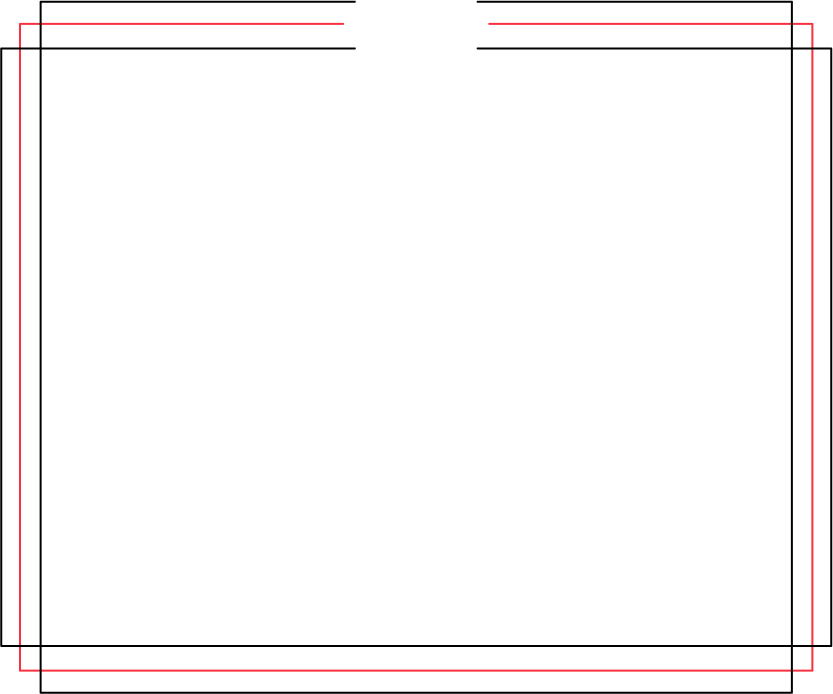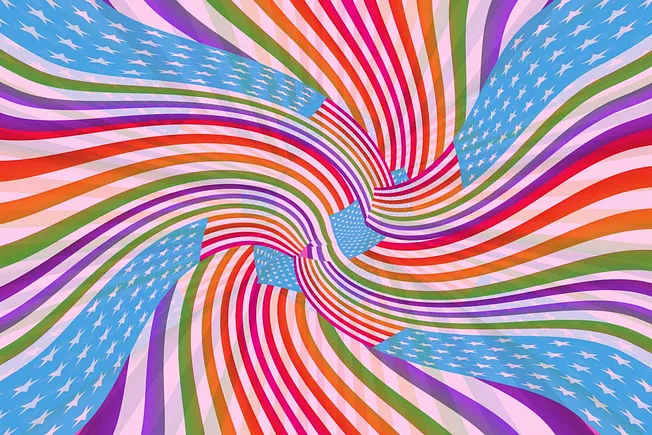After Donald Trump was elected, Emily Rose, 51, flew to New York with her daughters to walk in the Women’s March. She demonstrated on the streets of Minneapolis, where she lives, in the days after George Floyd’s murder. She donated money to small, black-led movements and social justice organizations that she believed in. She unlearned and then re-educated herself, as white Americans were instructed to, and read the teachings of anti-racist scholars like Ta-Nehisi Coates.
But then, after the massacre in Israel on October 7, when some 1,400 Jews were brutally murdered, not to mention the rapes, beheadings, and instances of torture, Rose began to notice something odd from the cohort of fellow progressives she admired: they were cheering for the other side.
“I started to see these intelligent, educated people, whose mission is to make our system better for people of color, suddenly posting all this anti-Israel, pro-Palestinian stuff,” Rose said. “I’m not changing my values, but screw the allyship. I will not stop fighting, because I believe in the causes themselves. But as for going out of my way to support, to post, to give money? I’m done.”
While professional politicos, like DSA founder Maurice Isserman, are publicly stepping down from their parties and denouncing organizations that justify, or even cheer, the events of October 7, and wealthy Jewish donors claw back their millions from elite universities that they say helped foment antisemitism on their campuses, there’s a quieter, more personal reckoning happening among progressive Jews. Like Rose, they feel betrayed by a left that they thought would have their backs.
Dov, 30, a Canadian musician who didn’t want to share her last name for privacy reasons, is transgender and a self-proclaimed “political progressive.” Since October 7, she says, “Every time I open Instagram I’m just like, blocking or deleting people that I thought I knew.” She calls anti-Zionism “cloaked antisemitism.”
Josh Gilman, 37, who lives in Arizona and prides himself on having friends across the political spectrum, says he has been muting even close friends who espouse anti-Zionist views. “I don’t need the emotional distress,” he told The Free Press. “If there’s someone who is truly my friend, it makes me feel that they very much don’t understand who I am as a person.” He’s cut out people he had invited to dinner at his home, and who he had trusted around his family and children.
“There’s a line in the sand, which is Israel,” he said.
Nate Clark, 34, lives in Virginia. He’s marched for gay rights, and in 2020, for the removal of statues of Confederate soldiers in his home state. He said his choice to stand up for others is rooted in his Jewish identity.
“As a Jew, I feel like it would be weird if I went to Germany and took a right turn down Hitler Avenue or saw a statue of Eichmann, and then hear people claim ‘Oh, it’s our history. We’re just proud of our history,’ ” he told me.
Since October 7, he’s found himself “politically homeless.”
The Jewish progressives The Free Press spoke to said they no longer believe in a left that sees their own people’s plight. They feel torn: they don’t want to give up on the progressive causes they’ve marched for and believe in. But groups like Jews for Racial and Economic Justice and Jewish Voice for Peace don’t speak for them, and they don’t feel kinship with Israel’s allies on the right—like evangelical Christians and social conservatives.
“When you look at the political right you see a group that seems very comfortable with Jews in Israel and very uncomfortable with Jews at home. And when you look at the political left, you see a group that seems very comfortable with Jews at home and very uncomfortable with Jews in Israel,” Clark said.
Amelia Adams, 26, a writer and comedian in New York, told me she first noticed Jewish suffering being downplayed in May 2021, during the last bout of violence between Hamas and Israel. She called it “the start of the gaslighting.”
Now, she said, it’s at another level. “People who have a lot of friends in the gay community and the trans community are like, ‘Are you kidding me?’ It’s hit LGBT Jews really hard. It’s like, ‘Where do we go from here?’ ”
Jack Hazan, a therapist in New York, agrees. He’s been hosting virtual group therapy sessions for Jews in the wake of the massacre. “I have clients in tears over this; we spend the entire session talking about it,” he says. A theme that’s come up again and again is betrayal, by best friends who parrot lines like “Israelis are guilty of settler colonialism,” or committing genocide.
He says there’s an element of shock among the many other Jewish people he counsels.
“You’re mourning the loss of who you thought was this confidant and friend, but what makes it doubly sad is that you feel the world is turned on you.”
So why does he think the left has turned on its own people?
“It’s not based on values or beliefs,” he replies, adding that the left’s view on Israel is part of a set of ideological platforms they can’t break from.
“Therefore,” he says, adopting the thinking of the progressive left: “I have to stick to my guns even though, you know, it seems a little crazy that a ninety-year-old woman is being escorted out of a tunnel, but it must not be that bad and there are two sides to the story.”
He concludes: “It’s totally sick.”
Clark said that for older friends he doesn’t keep in touch with, the block button has come in handy. For closer friends, many of whom work in academia, he’s taken a more tactful approach.
“I’m trying to explain to them why this is so important, why Israel matters and why Jews need a homeland.”
But some aren’t open to hearing about Israel at all. Adams told me about talking to a friend’s boyfriend at a wedding when it came up that her cousin was in the IDF.
“I was talking to a white guy from New Jersey whose family probably came here on the Mayflower, and he turned to me like, ‘Why would you be proud of that?,’ like ‘Ew.’ ”
She was caught off guard.
“I responded like ‘She doesn’t, uh, well, do the bad things.’ It was humiliating. I stumbled over my words.”
Thinking back, she asked, “Why did I say that? We don’t need to apologize for our existence.” She called the phenomenon of white, liberal Americans looking down on her Zionism as “West-splaining,” a term borrowed from Einat Wilf.
Adams is a law student and a liberal. “I’m very pro-choice, I’m very for bodily autonomy. I spent the better part of 2020 concerned if I could get married to my girlfriend. I was terrified my rights would be taken away.”
I asked her if she still thinks of herself as a woman on the left.
“If you asked me that three weeks ago, I would’ve said yes.” But now, she says, “Honestly, I don’t know.”
Asked if she thinks that the past few weeks will affect how she casts her ballot in 2024, Adams replied, “I can't vote,” because she is an immigrant, but added, “I feel lucky that this is a decision that I don’t have to make.”
As for Rose, she says her party registration isn’t shifting quite yet, though her media habits are.
“My friends and I are like, ‘My God, we find ourselves watching clips on Fox News.’ ”
Suzy Weiss and Francesca Block are writers for The Free Press. For more on this subject, read Julia Steinberg’s piece “Why My Generation Hates Jews.”
And to support more of our work, become a Free Press subscriber today.











our Comments
Use common sense here: disagree, debate, but don't be a .